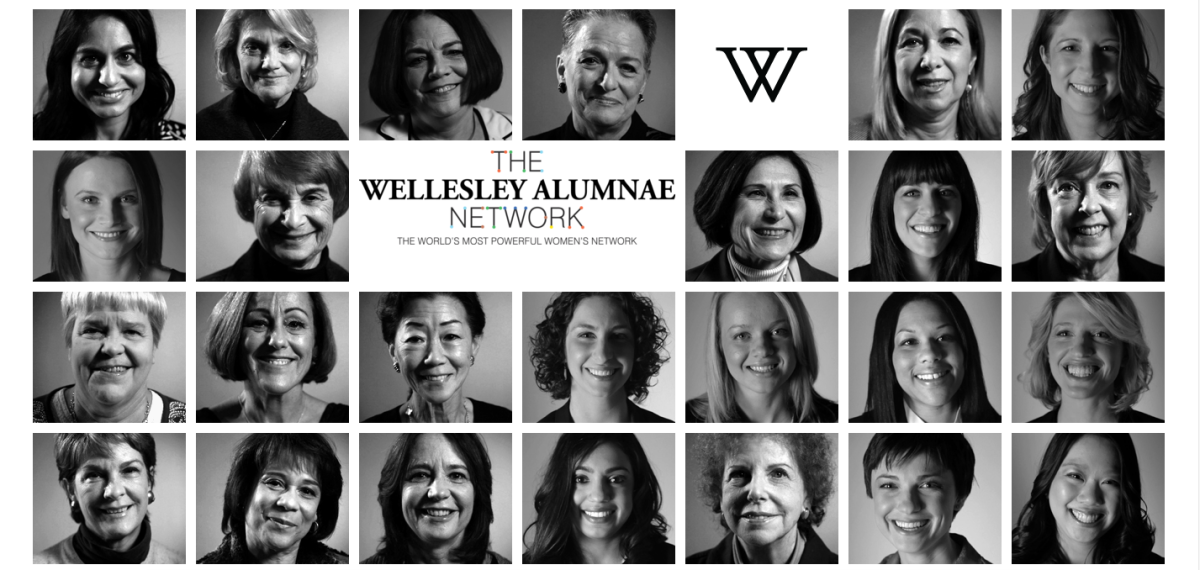With over 35,000 alumnae in total, Wellesley College graduates constitute one of the world’s most influential women’s network. For some of these individuals, graduation signifies the conclusion of their involvement in on-campus organizations and activities. Yet, for many others, continued participation in the college’s numerous groups and clubs is a way to maintain their connection with Wellesley.
One of the most common ways alumnae collaborate with on-campus organizations is through participating in panels and discussions related to careers after Wellesley. In the fall semester, the Pre-Law Society held its annual “Tea with a Lawyer” event, where Wellesley alumnae working in law were invited to speak about their professions. Abby Moncrieff ’03, a law professor at Boston University, and Robin Nice ’07, an immigration lawyer at Barker, Epstein, Loscocco & McHaffey, met with members of the pre-law society to discuss how they arrived at their current occupations and what advice they would offer to aspiring law students.
Gabi Vesey ’18, the Alumnae Liaison of the Pre-Law Society, acknowledged that these types of panels and discussions are useful to students who seek advice on professional development and networking.
“Alumnae offer great advice to current students, and I think students really take that advice to heart because alumnae were once in their shoes,” Vesey said. “It is also sometimes comforting to hear stories about how alumnae found Wellesley to be challenging because many students here find that to be the case.”
Not only do alumnae offer advice and insight through panels and discussions, they are also able to share introspective and contemplative experiences through submissions to on-campus publications. The college’s literary magazine, the Wellesley Review, welcomes submissions not only from current students but also from Wellesley alumnae. The fall 2015 issue of the magazine featured works from multiple alumnae, including digital photography by Erika Haines ’10.
According to Co-Editor-in-Chief of the magazine Emily Frisella ’16, the pieces alumnae submit are often reflective of their post-Wellesley experiences, contributing to the diversity of the works included in the magazine.
“Alum contributions to the content of the Wellesley Review are valuable in much the same way as pieces from current students: they are thoughtful, thought-provoking, beautiful, or interesting,” she said. “But alums who reach out on a more personal level can also offer mentorship, advice and a bit of perspective.”
Frisella also acknowledged that alumnae contributions to the publication are of immense value as they demonstrate the passion alumnae have to stay in touch with campus organizations, fostering a sense of community between Wellesley graduates and current students.
“It’s always encouraging to hear from alums who value the role that the Wellesley Review plays in college’s literary and artistic community and who want to remain involved in that community,” Frisella said. “For our organization, I think alums’ main role is supporting and maintaining a sense of community around the magazine and I imagine other student orgs also benefit from that kind of support.”
In addition to sharing their experiences and reflections, alumnae have also reached out to organizations to initiate new projects. Recently, an alumna collaborated with Wellesley’s Association for South Asian Culture (WASAC) to start a written word project.
Former member of WASAC Nimrah Siddiqui ’12 had the idea of creating a platform for students, faculty and alumnae to share stories of their identities and experiences with South Asian culture. WASAC presidents Mariya Patwa ’16 and Dahlia Rawji ’16 recently collaborated with Siddiqui to create a blog where these stories could be posted.
Patwa feels that it is important to have a foundational alumnae network for cultural organizations in particular, as it offers students another community that they can feel a part of.
“I think that it’s important to build an alumnae network for WASAC so that our members have an additional group outside of Wellesley to connect with that they might identify with on a professional and personal basis,” Patwa said. “Just knowing that there is a group that may share cultural or linguistic similarities is so comforting.”
Vesey agreed that the college’s impressive alumnae network is one of the aspects that makes a Wellesley education valuable.
“I think it is really great to connect with alumnae because students are able to see where a Wellesley education can take them. As a student assistant at the Alumnae Association at Wellesley, I get many calls from alumnae who want to stop by campus and see what events are going on. I think that is such an amazing part of Wellesley,” she said. “Imagine if Wellesley alums had no desire to keep in contact with the school; the environment on campus would be completely different.”






